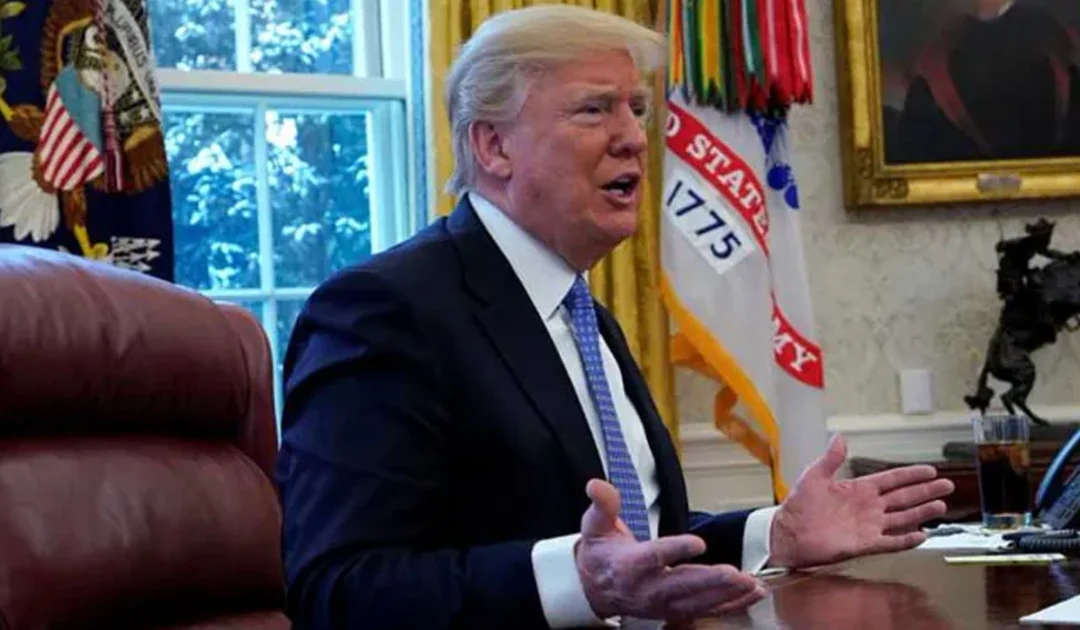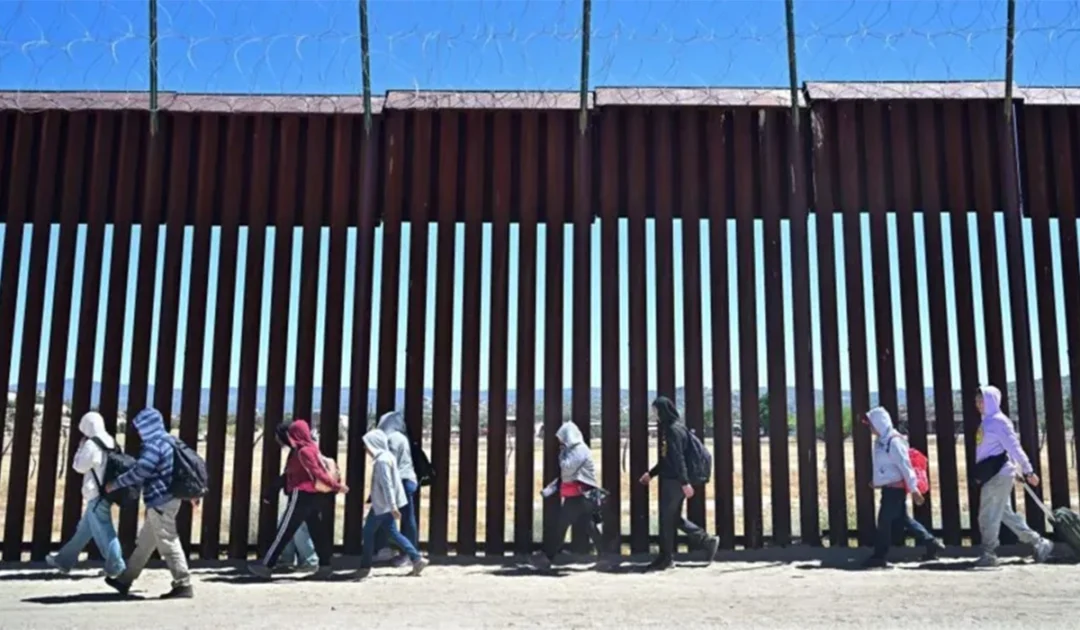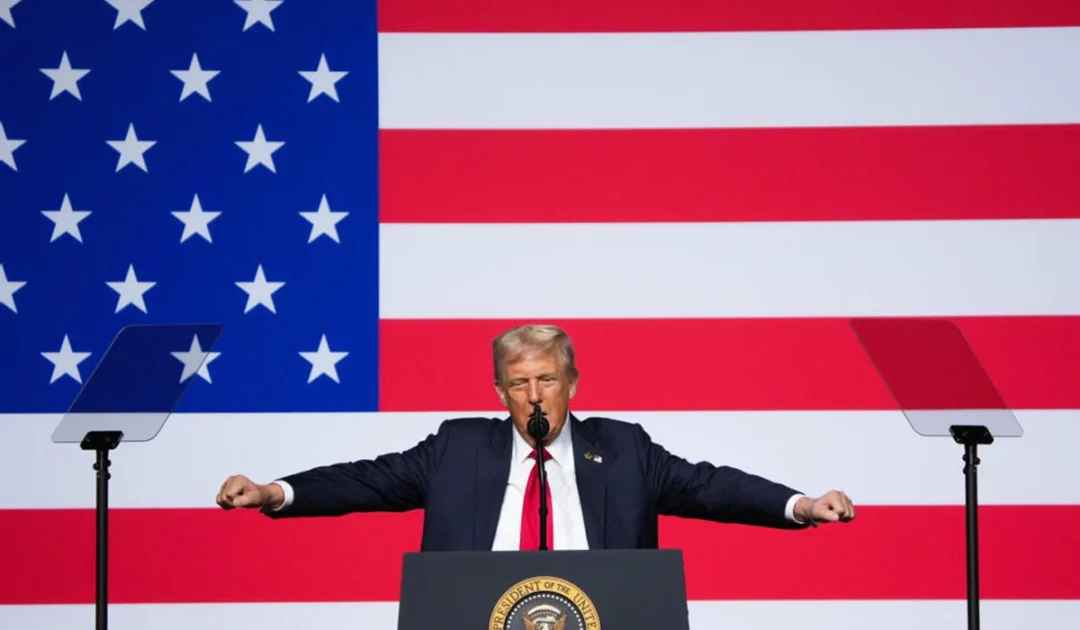- Reuters
- 6 Hours ago

‘Greater Israel’: Arabs denounce Netanyahu, Saudis reject ‘colonisation’

CAIRO: Arab nations have slammed comments by Israeli Prime Minister Benjamin Netanyahu expressing support for the idea of an expanded “Greater Israel”, calling the remarks a threat to their sovereignty at an especially tense time for the region.
Similarly, the Organisation of Islamic Cooperation (OIC) on Thursday warned that Tel Aviv’s “expansionist colonial discourse” poses threat to regional and international peace.
On the other hand, the EU top diplomat urged Israel “to desist” from the plan to build homes in a particularly contentious area of the occupied West Bank.
“The decision of Israeli authorities to advance the E1 settlement plan further undermines the two-state solution while being a breach of international law,” Kaja Kallas said in a statement.
She added, “The EU urges Israel to desist from taking this decision forward, noting its far-reaching implications.”
Meanwhile, the ideas being endorsed and propagated by Netanyahu will certainly make it very difficult, if not impossible, for the Arab nations to join the Abraham Accords as desired by US President Donald Trump.
Read more: Trump wants Middle East nations to join Abraham Accords
NO SETTLEMENTS
On the other hand, UN spokesperson Stephane Dujarric said the United Nations calls on Israel to reverse its decision to start work on a long-delayed settlement that would divide the West Bank and cut it off from East Jerusalem.
“It would put an end to prospects of a two-state solution,” Dujarric told reporters.
“Settlements go against international law… further entrench the occupation.”
BURY THE IDEA OF PALESTINE
However, Israel is hell-bent to advance its nefarious designs, as Israeli far-right Finance Minister Bezalel Smotrich on Thursday talked about burying the idea of a Palestinian state.
Smotrich announced work would start on a long-delayed settlement that would divide the West Bank and cut if off from East Jerusalem, a move his office said would “bury” the idea of a Palestinian state.
US AGREES
Meanwhile, the United States in its response to Smotrich’s said a stable West Bank was in line with the Trump administration’s goal for peace in the region.
Asked about Smotrich’s statement that Netanyahu and Trump had agreed to the revival of the so-called E1 development, a spokesperson for the US State Department said the United States remained focused on ending the war in Gaza and ensuring Hamas will never govern that territory again.
“A stable West Bank keeps Israel secure and is in line with this administration’s goal to achieve peace in the region,” the spokesperson said, while referring to the Israeli government for further information.
EXTREMISM AND INCITEMENT
In a a statement, the OIC said the comments were “an extension of the rhetoric of extremism, incitement, aggression, and disregard for the sovereignty of states”.
“The organisation warns of the danger of this expansionist colonial discourse, which poses a threat to regional and international security and peace, fuels the cycle of violence, and expands and prolongs the conflict in the region,” said the statement.
WHAT IS GREATER ISRAEL
The term Greater Israel refers to a biblical interpretation of the nation’s territory during the time of King Solomon, encompassing not only the present-day Palestinian territories of Gaza and the occupied West Bank, but also Jordan, Lebanon and Syria as well as parts of Saudi Arabia and Egypt.
Ultra-nationalist Israelis have called for these territories to be occupied.
Read more: It is all about Balkanization of Iran, not Iranian nuclear programme
NETANYAHU AND ‘GREAT MISSION’
Asked on Tuesday by i24NEWS interviewer Sharon Gal if he subscribed to such a “vision” for a Greater Israel, Netanyahu said “absolutely”, adding, “If you ask me what I think, we’re there.”
He then pivoted to a comment about the founding of Israel and the “great mission” of ensuring its continued existence.
PROVOCATIVE ESCLATION
Israel’s neighbour Jordan on Wednesday condemned the prime minister’s Greater Israel remarks as a “dangerous and provocative escalation” and “a threat to the sovereignty of states”.
A spokesman for its foreign ministry went on to reject what he called Netanyahu’s “inflammatory” rhetoric and “delusional claims”.
Egypt also said on Wednesday that it had “requested clarification on this matter”, characterising it as tantamount to a “rejection of the option of peace in the region”.
Netanyahu’s remarks come in the midst of a 22-month war between Israel and the Palestinian militant group Hamas in the Gaza Strip that has repeatedly spilled over into the wider Middle East and provoked frequent condemnation of Israel from across the Arab world.
On Thursday, Iraq’s foreign ministry condemned the comments, saying they revealed Israel’s “expansionist ambitions” and were “a clear provocation to the sovereignty of countries”.
Read more: Saudi Arabia says two-state solution to bring peace, stability
Gaza mediator Qatar also decried Netanyahu’s statements calling them “absurd” and “inflammatory”.
The allusion to an expanded Israel also comes as far-right members of Netanyahu’s cabinet demand the conquest of Gaza and annexation of the West Bank, where the government recently approved a rash of new settlements considered illegal under international law.
TOTAL REJECTION
Saudi Arabia on Wednesday voiced “its total rejection of the ideas and plans for colonisation and expansion adopted by the Israeli occupation authorities”, reiterating “the historical and legal right of the Palestinian people to establish their independent state”.
In February, Netanyahu in a television interview provoked an outcry from Arab countries after he suggested a Palestinian state could be established on Saudi land.
In Tuesday’s sit-down, the premier also revived calls to “allow” Palestinians to leave Gaza, telling Israeli broadcaster i24NEWS that “we are not pushing them out, but we are allowing them to leave”.
Past calls to resettle Gazans outside of the war-battered territory, including from US President Donald Trump, have sparked fears of displacement among Palestinians and condemnation from the international community.






